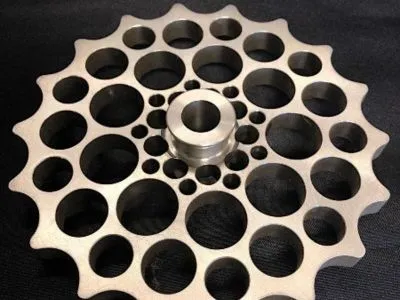Understanding precision tolerances is essential for engineers, designers, and manufacturers who rely on high-quality components. Whether you're working in medical devices, aerospace, or industrial machinery, the ability to produce parts with minimal deviation from specifications is often the difference between success and failure. Tolerances are typically measured in microns (μm) or thousandths of an inch (0.001"). While general-purpose machining can achieve tolerances of +/- 2 to 5 thousandths of an inch, the most advanced precision machining operations aim for tolerances as tight as 1 micron or less. This level of precision is critical in applications where even the smallest deviation can lead to performance issues or safety concerns. The medical device industry is one of the most demanding when it comes to precision. Components such as implants, surgical instruments, and diagnostic tools must be manufactured with extreme accuracy. For example, in procedures like laser eye surgery, tolerances of 1 to 3 microns are not uncommon. Any deviation beyond these limits could result in serious consequences, making precision a non-negotiable requirement in this field. Aerospace engineering also relies heavily on tight tolerances. From jet engines to spacecraft components, every part must meet exacting standards to ensure performance, reliability, and safety. In some cases, tolerances as small as 2 microns are required. These minute measurements help reduce weight, improve efficiency, and maintain the structural integrity of complex systems under extreme conditions. While modern CNC machines have made significant advancements, achieving sub-micron tolerances remains a challenge. Factors such as thermal expansion, machine vibrations, and tool wear can all affect the final outcome. Most high-precision shops operate within a range of 2 to 5 microns, which is considered the practical limit for consistent production. However, for applications requiring even greater accuracy, specialized equipment and advanced techniques are necessary. Cheetah Precision Machining has the expertise, technology, and experience to handle even the most demanding precision jobs. With advanced 5-axis milling systems, rigorous quality control processes, and a team with decades of experience, we deliver parts that meet the strictest tolerances. Whether you need prototypes, custom parts, or high-volume production, we provide reliable solutions tailored to your needs. If you're looking for a trusted partner in precision manufacturing, contact us today at (651) 633-4566. We’re here to help you achieve the highest level of accuracy and performance in your projects. Click here to learn more about our services and capabilities. Flexible Tpu Roll 3d Printer Filament,Tpu 3d Printer Filament,Color Change Flexible Soft Tpu,3D Printing Filament TPU,TPU Filament 3D printer filament Shenzhen Xinzerong Technology Co., Ltd , https://www.xzr3d.com Precision machining plays a vital role in many industries, especially when it comes to creating parts that require extremely tight tolerances. But what exactly defines the "tightest" tolerance and how far can manufacturers push the limits of accuracy?
Precision machining plays a vital role in many industries, especially when it comes to creating parts that require extremely tight tolerances. But what exactly defines the "tightest" tolerance and how far can manufacturers push the limits of accuracy?Microns and Thousandths of an Inch
Medical Device Manufacturing
Aerospace Component Tolerances
The Limits of Modern Machining
Why Choose Cheetah Precision Machining?
What is the Tightest Tolerance for a Precision Machining Company?
Flexible Tpu Roll 3d Printer Filament,Tpu 3d Printer Filament,Color Change Flexible Soft Tpu,3D Printing Filament TPU,TPU Filament 3D printer filament Shenzhen Xinzerong Technology Co., Ltd , https://www.xzr3d.com